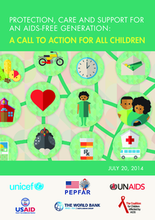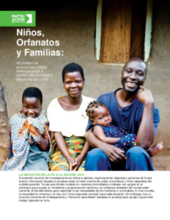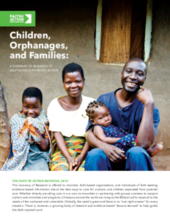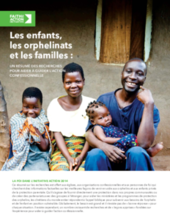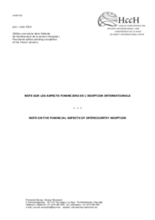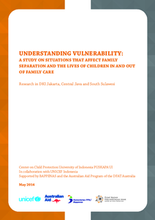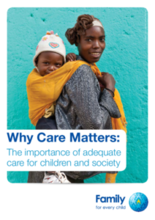Displaying 351 - 360 of 505
In this TED talk, pediatrician Nadine Burke Harris explains how childhood trauma--such as abuse, neglect and parents struggling with mental health or substance abuse--has real, tangible effects on the development of the child's brain. Children who have experienced high levels of trauma and adverse childhood experiences are at triple the risk for heart disease and lung cancer. This is because of the body's stress response system, which is activated repeatedly during childhood by the adversity.
This article argues that orphanage voluntourism fuels the displacement and trafficking of children from their families in Nepal and their unnecessary institutionalisation.
This call to action is for all who are committed to achieving an AIDS-free generation.
This call to action is for all who are committed to achieving an AIDS-free generation.
El presente resumen de investigaciones se ofrece a iglesias, organizaciones religiosas y personas de fe que buscan información basada en pruebas sobre la mejor manera de cuidar a huérfanos y niños separados del cuidado parental.
This Summary of Research provides a concise overview of a range of studies and findings that can inform approaches to caring for children who, through orphanhood, abandonment, or other causes, have been separated from parental care.
Ce résumé sur les recherches est offert aux églises, aux organisations confessionnelles et aux personnes de foi qui cherchent des informations factuelles sur les meilleures façons de venir en aide aux orphelins et aux enfants privés de la protecti
To address the issues related to the financial aspects of intercountry adoptions, the Hague Convention initiated an Experts’ Group, which met in October 2012 and produced nine Conclusions and Recommendations, which they brought to the Permanent Bureau to publish as a “Note”.
This report presents analysis and key findings from a study aimed at fully understanding the situations of children in Indonesia that may lead to family separation.
This report highlights the needs of children without adequate family care, the impact inadequate care on children and society, and why family care is important. In this report, Family for Every Child also issues several recommendations for those in all sectors of society and an example of care reform from Brazil.

